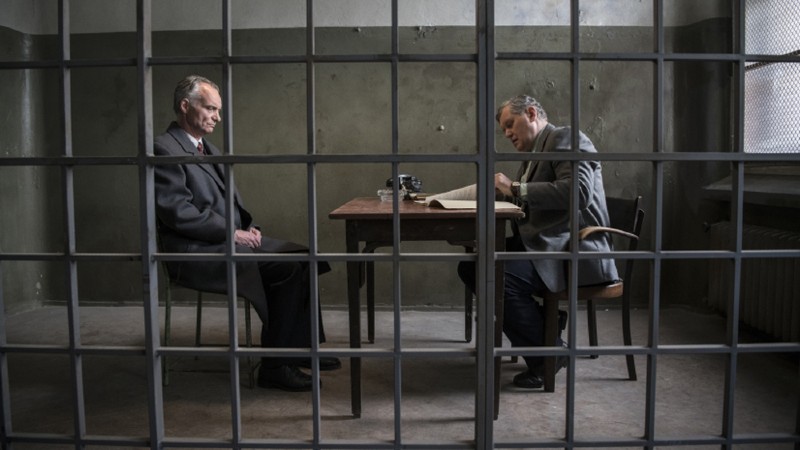




The latest film by the Polish direct Agnieszka Holland takes place in Czechoslovakia, the country where she studied film in the 1970s. It follows the steps of Jan Mikolášek (Ivan Trojan), a healer who used exclusively herb-based remedies in order to treat his fellow citizens, and even Germans during the occupation. Throughout his lifetime, he saw up to four million patients, including Nazi Party Chancellor Martin Borman and Czechoslovakian Prime Minister Antonín Zápotocký.
Mikolášek learnt his skills from an old female healer during his youth. At first she shunned him, but decided to give the young man a chance upon realising that he was indeed gifted. He bought a large mansion and turned it into a medical institution. He became established and wealthy. The assertive and yet kind physician identified several diseases, or at least the organ affected, simply by observing the patient’s urine. Sediments indicated an infection, flakes suggested sterility, and so on. The Nazis were impressed at his ability. After the War, he remained a much cherished member of the community, credited with saving thousands of lives. He also became a notorious philanthropist, helping children and local charities. On the other hand, Czechoslovakian authorities often questioned his methods and described him as a charlatan. His popularity, however, seemed to shield him from prosecution.

The unorthodox doctor was supported by his loyal assistant František (Jurad Loj), with whom he also maintained a romantic and a sexual relationship. All is well until one day the regime decided to challenge his status. Both Jan and František were accused of killing two government officials by providing them with medication spiked with strychnine. They have been framed, yet the two men seemed to have no idea why. What was indeed very clear is that they needed to fight very hard for their innocence, as the prosecutors had proposed the death penalty. Could the two secret lovers (at a time when homosexuality was criminalised) dodge the accusations and resume their lives as normal? And could Jan’s public notoriety work in his favour, or could it become a handicap?
This is a very conventional historical drama. The topic choice is fascinating, although it’s unclear how much is true and how much is fictionalised. There’s very little literature in English about Mikolášek, so it’s difficult to check the veracity of the events in the movie. The screenplay, penned by Marek Epstein has more holes than Swiss cheese. The narrative zigzags back and forth in time and it’s often difficult to establish what year we are in, where the actions is taking place, and who the real enemies are. The political landscape isn’t clearly contextualised, the interests of the Czechoslovakian government as blurry as some of the urine samples. Weak research? Poor screenwriting? Unsteady direction? Only the real Mikolášek could establish the diagnosis.
Charlatan premiered at the 70th Berlin International Film Festival as part of the Gala Specials section, when this piece was originally written. It’s out on BFI Player in June, 2002. Also available on other platforms.
















